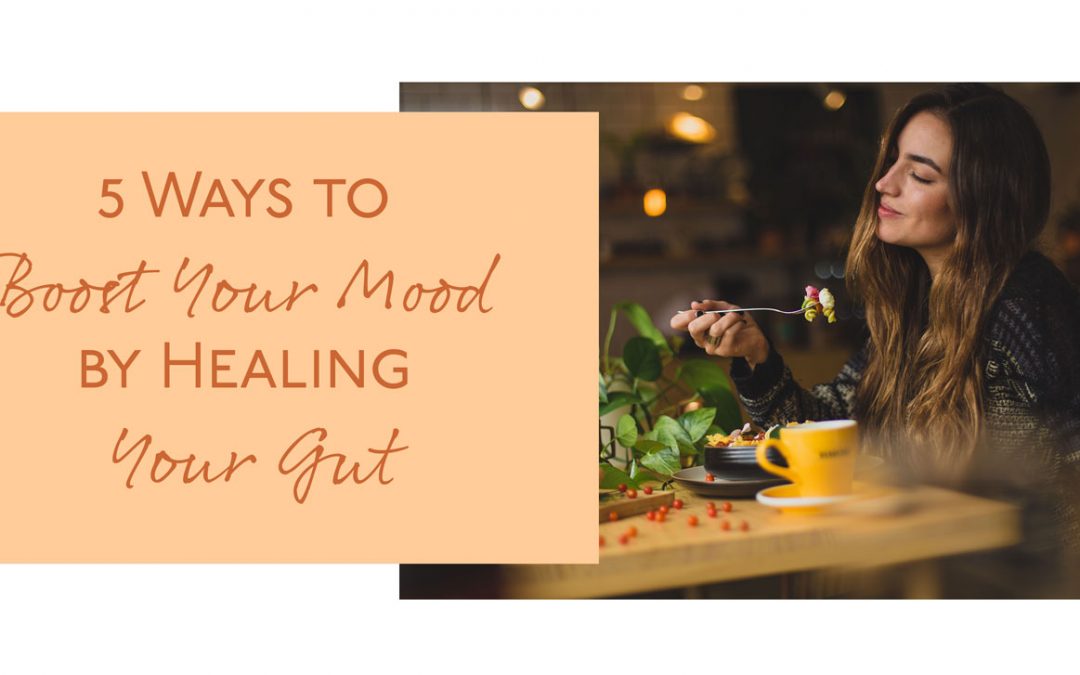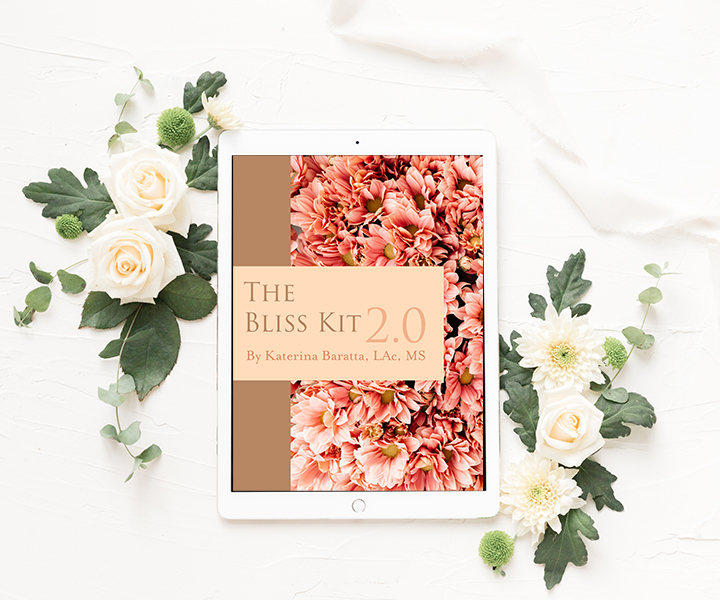5 Ways to Boost Your Mood by Healing Your Gut
Pop Quiz: Where do stress and anxiety start?
Would you believe it if I told you the answer is in your gut?!
It’s true.
One of the best ways to boost your mood is by healing your gut.
If you want to reduce stress, calm anxiety, and increase happiness, then you have to start by looking at what’s going on in your digestive tract.
Because those butterflies in your stomach aren’t fluttering their wings randomly.
Health starts in the gut.
And this is just as true for mental health as it is for physical health.
The nerves that line your gut are directly linked to your brain in what’s been dubbed the gut-brain axis. (1)
And more and more studies are coming out showing that your gut and brain are more like conjoined twins than distant cousins.
Just for starters, 90% of serotonin -also known as one of your key “Happiness Hormones” or neurotransmitters- is produced in your gut. (2)
This is thanks to the bacteria that make up your gut microbiome.
Yes, you read that right.
Because bacteria don’t all deserve the bad reputation they’ve been given.
In fact, you have about 100 trillion microbe roommates living with you in your GI tract. (3)
And at least a billion or two of them are twiddling their microscopic thumbs, waiting for you to send them their Thank You cards.
Because they’re working really hard every day to keep you healthy and boost your mood.
The least you could do is support them in their effort.
But stress and anxiety aren’t the only signs that tell you your system could use a break.
Some other signs include:
- Brain fog
- Depression
- Undigested food in your stool
- Gas and bloating
- Irritability
- Headaches
- Insomnia
- Seasonal allergies
Just to name a few.

Read on to learn the 5 ways to boost your mood by healing your gut.
1. Start with Slow-Cooked, Easy-to-Digest Soups
Traditions like Indian Ayurveda, ancient Greek and Chinese medicine have recognized the importance of a healthy gut for thousands of years.
Just look at these quotes:
“For the human body to remain in a healthy state, nothing else is required but to care about its nourishment,” -Zhang Zhongjing
“When diet is wrong, medicine is of no use; when diet is correct, medicine is of no need,” -Ayurvedic Proverb
“Let thy food be thy medicine, and thy medicine be thy food,” -Hippocrates
What do they all have in common?
They put digestion at the center of human health.
But there’s something else that most people don’t realize when they look at these quotes:
All of these traditions took for granted that the mind and body are part of the same whole.
Ayurveda, for example, has a whole set of recommendations for a “sattvic” diet.
And it’s specifically designed to help you attain peace of mind, body, and soul through what you eat.
Both Ayurveda and Chinese medicine prescribe slow-cooked soups as the easiest way to get the nourishment you need in order to feel good.
So if you’ve been dealing with a lot of stress and anxiety, you might want to think about doing a 3+ day kitchari or congee cleanse to boost your mood.
Added bonus:
When you don’t have to think about what you’re making for breakfast, lunch and dinner, you’ll have one less thing to worry about!
But there’s still something here for you even if you don’t want to do a full-on cleanse.
Eating these slow-cooked grain, lentil, and fresh vegetable soups is a great way to give your digestive tract a break anytime you need it.
Pureed vegetable soups are also a good option.
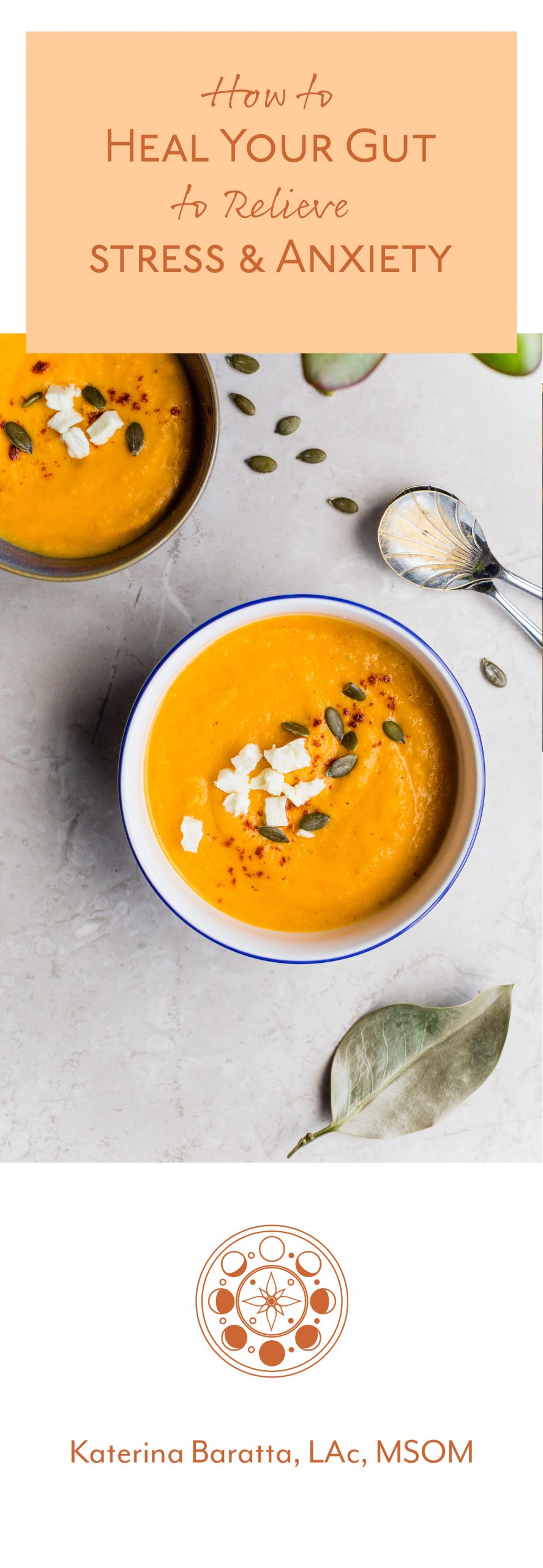
If you have any gut-imbalance symptoms popping up for you, get out that soup pot and start up your slow cooker!
Your gut’ll thank you for it.
And you’ll feel better when you do.
Pureed vegetable soups are also a good option.
If you have any gut-imbalance symptoms popping up for you, get out that soup pot and start up your slow cooker!
Your gut’ll thank you for it.
And you’ll feel better when you do.
2. Increase Fiber Intake
Fiber is as important for gut health as your vacuum cleaner is to your floor.
Because it’s the hard-to-digest part of plant-based food that brushes through your system and carries out all the unwanted gunk.
It also happens to be what the healthy bacteria in your large intestine like to munch on the most.
And when you keep them happy, you’ll have a much easier time feeling happy, too.
Raspberries, collards and turnip greens are some of the best sources of fiber.
Legumes like navy beans, dried peas, lentils, chickpeas, pinto, black, lima and kidney beans are great too, especially if you soak and sprout them in advance. (4)
Long-story short, the more fiber-rich whole plant-based foods you can pack into your meals, the better.
(Unless of course you notice uncomfortable symptoms like gas, bloating, and undigested food in your stool show up. If this is the case, refer above and start with the easy-to-digest soups until your gut is stronger.)
3. Eat Fermented Foods
Fermented foods are another easy way to keep your gut healthy so you feel better.
Because they don’t just support the bacteria that are already in your gut.
They actually bring more bacteria to the party.
Which means your microbiome diversity goes up and so does the healing potential of your gut population. (5)
Our ancestors had an advantage over us in this.
Because before refrigeration there weren’t that many options when it came to keeping food fresh enough to eat.
You either had to eat your food straight out of the garden, store it in a dark hole, or let it ferment.
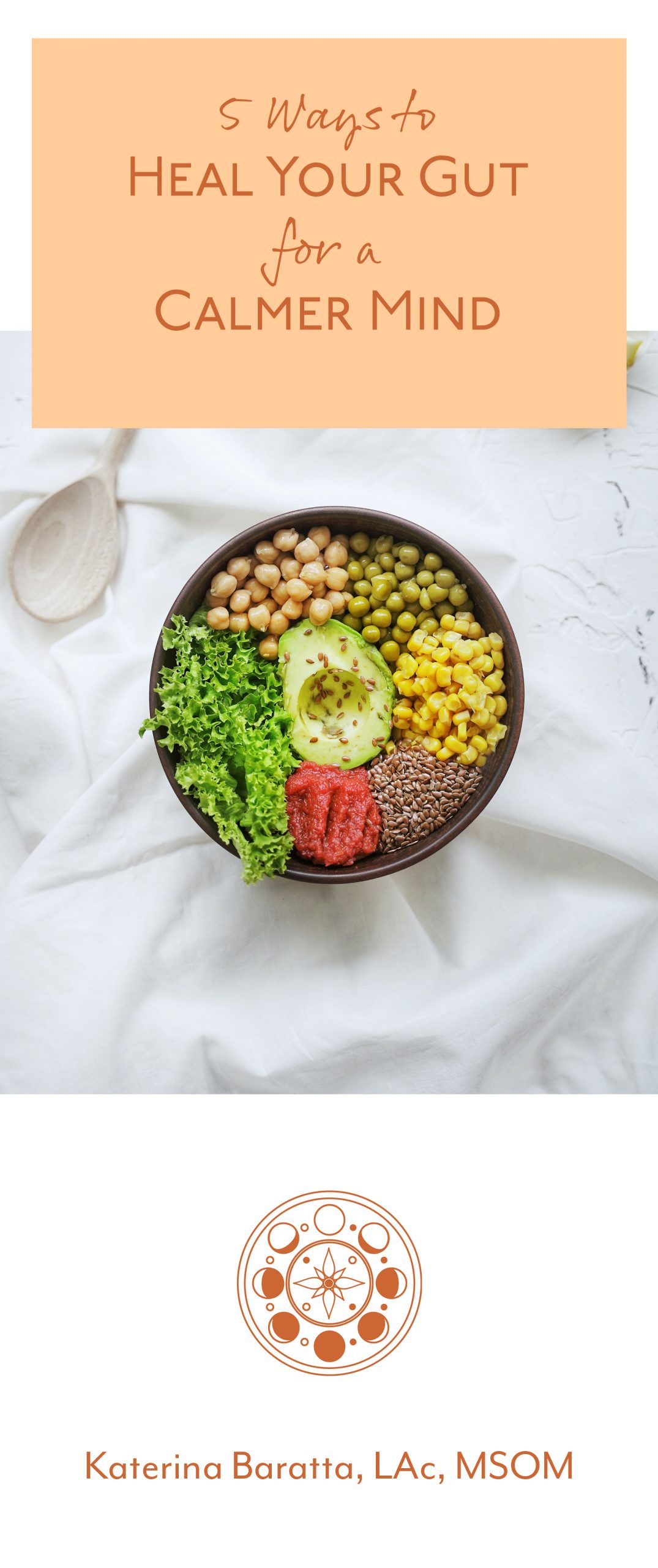
Of course refrigeration is awesome.
But modern technology’s also shifted our eating habits in ways that don’t totally benefit our well-being.
Make it a point to add more fermented pickles, sauerkraut, and kefir into your diet and you’ll get yourself back on track.
(And again, if you notice that you have a hard time digesting fermented foods, start with the easy-to-digest soups.)
4. Take Probiotics
We’ve already established that your gut health could probably use some improvement.
And there are a few reasons for this.
Not only are most modern diets lacking in fiber-rich and probiotic fermented foods, but the foods that we are eating aren’t doing us many favors when it comes to our microbiome.
Overly-processed grains, sugars, an excess of meat consumption can all add up to cause problems in your gut.
And the fact that we over-sanitize our environments and overuse antibiotic medications doesn’t help either.
Which is why most of us should be taking probiotic supplements in addition to eating a gut-healthy diet.
There’s more and more evidence coming out to support this.
One study showed that probiotic supplements containing Bifidobacteria specifically lead to happier mood and less anxiety when taken over 3 weeks. (6)
Other studies have shown that probiotic strains Lactobacillus and Bifidobacterium, both help to boost serotonin levels, especially Lactobacillus Johnsonii and Bifidobacteria Infantis. (7)
There are lots of probiotic supplements on the market today.
So if you want to boost your mood and reduce anxiety, check the label and make sure you get in a good dose of these particular strains in there.
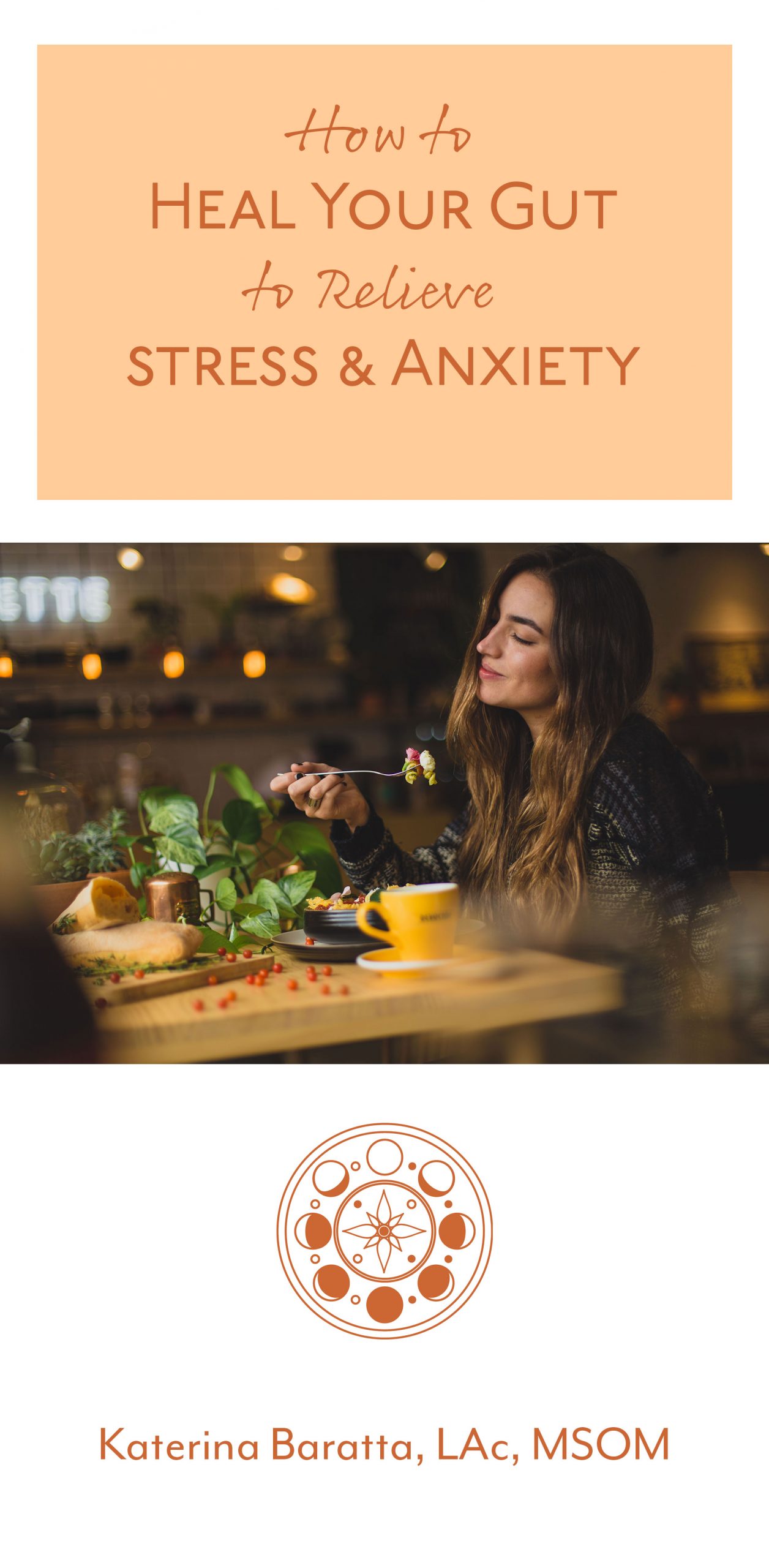
5. Practice Stress-Management Strategies
But that’s not all there is to boosting your mood and reducing stress and anxiety.
Because it goes both ways.
If your stress levels are through the roof it’s going to change the kinds of bacteria that want to show up in your gut microbiome party. (8)
Which means that you’re going to have to do your part to keep them happy in other ways, too.
Otherwise it’s way too easy to get stuck in a vicious cycle.
First you feel anxious because the balance of bugs in your gut is off, or some other hidden cause of anxiety triggers you.
Then that same anxiety make a whole lot of your bug-friends think twice about coming to the party, so you have less support in your gut.
Which then makes you feel even more anxious, inspiring more bugs to hit the road, and then you feel more anxious again, throwing your microbiome off kilter again, so you feel more anxious…
You get the picture.
If you want to keep your microbiome happy and your mood elevated, you’ve got to work on what’s going on in your mind, too.
Meditation, mindfulness, and appreciation are a great place to start.
Movement, time in nature, hugs, smiling, and power poses all cause physiological reactions that boost good feelings too.
Remember, the mind and body aren’t just connected.
They are part of the same whole.
So if something feels off, you have to look at the big picture to find real answers.
References:
- https://www.ncbi.nlm.nih.gov/pmc/articles/PMC4367209/
- https://www.ncbi.nlm.nih.gov/pmc/articles/PMC4393509/
- https://www.health.harvard.edu/staying-healthy/can-gut-bacteria-improve-your-health
- http://www.whfoods.com/genpage.php?tname=nutrient&dbid=59
- https://www.ncbi.nlm.nih.gov/pmc/articles/PMC6306734/
- https://www.ncbi.nlm.nih.gov/pmc/articles/PMC5641835/
- https://pubmed.ncbi.nlm.nih.gov/31825083/
- https://www.ncbi.nlm.nih.gov/pmc/articles/PMC6143810/


